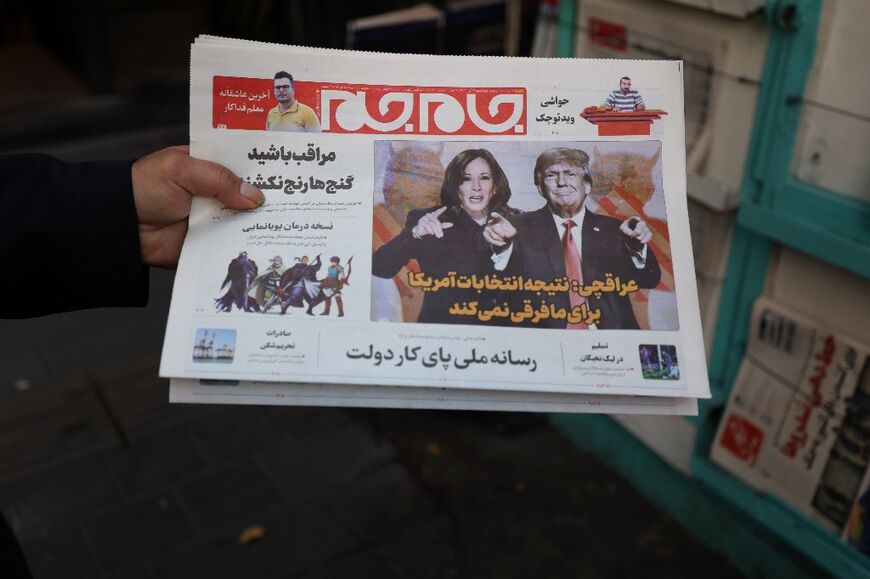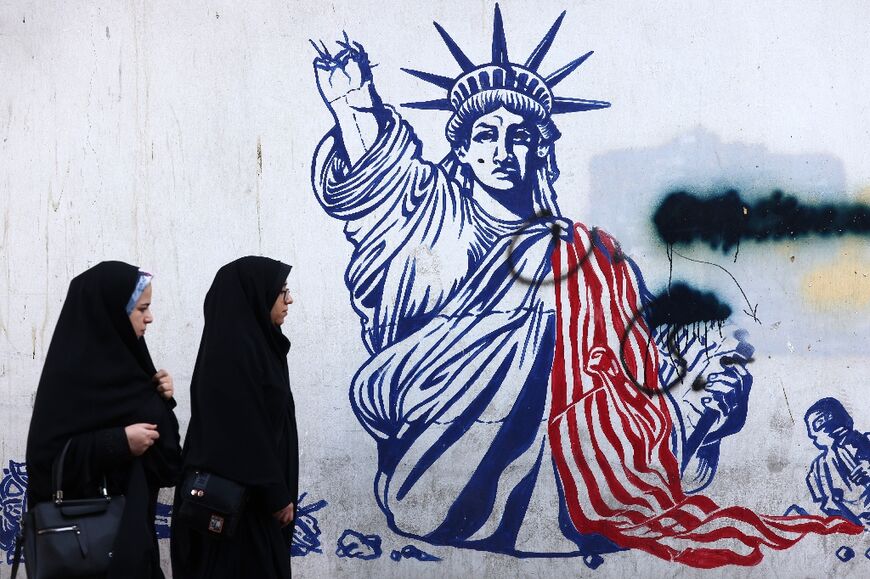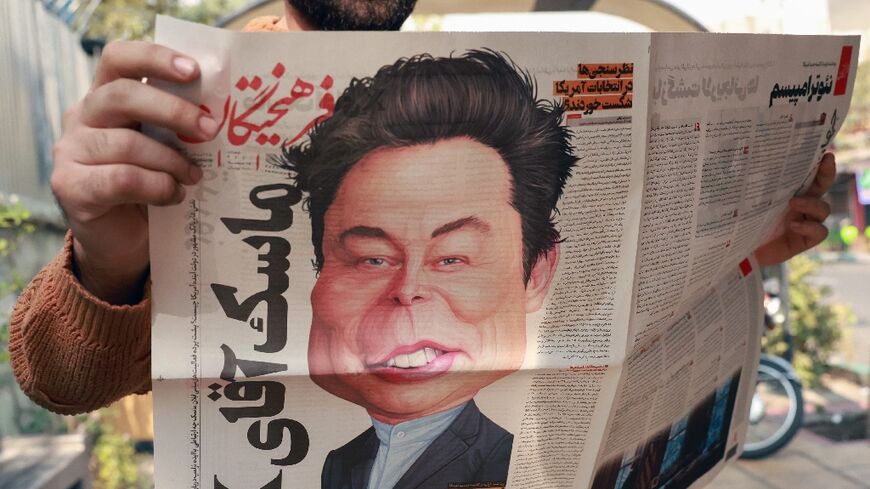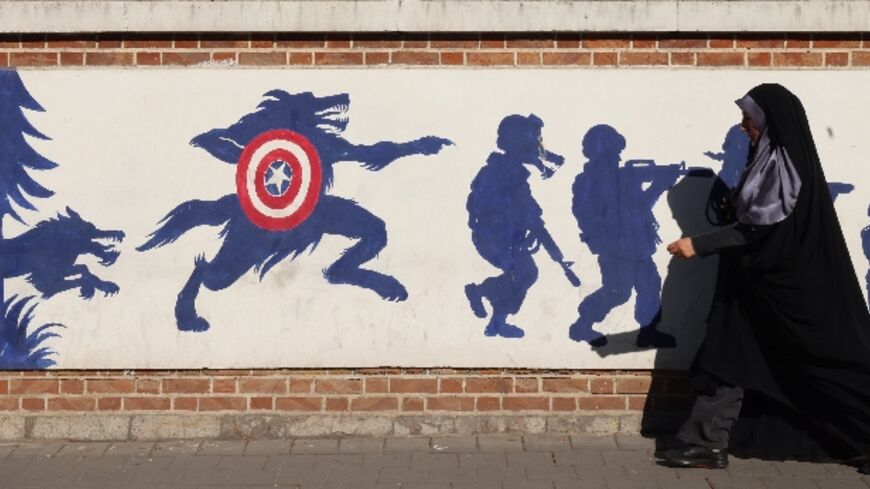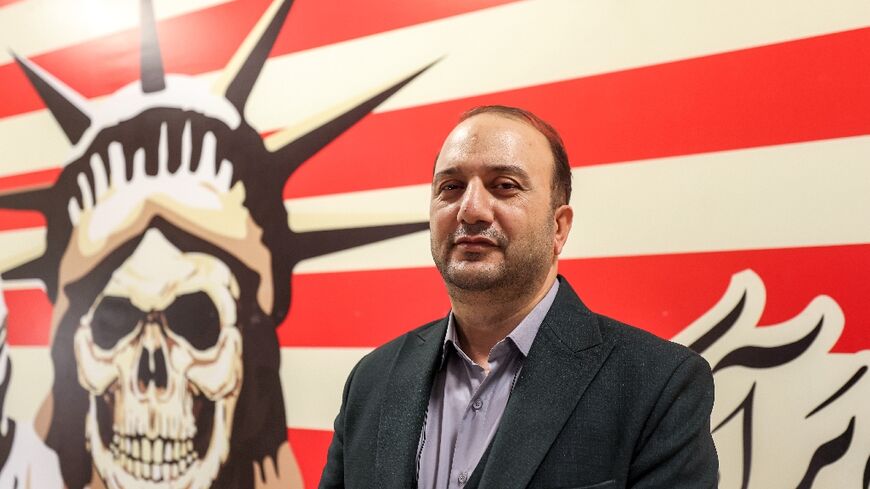Iranians fear Trump comeback will bring them more pain

When Donald Trump was last in the White House, he pursued a policy of "maximum pressure" against the Islamic republic of Iran, including punishing sanctions.
Now that he is set to begin another term as US president in January, anxiety is mounting in Tehran that more of the same will follow.
During Trump's first term, the United States also killed a revered Islamic Revolutionary Guard Corps general in an air strike on Baghdad airport in Iraq.
Such history between the two long-time adversaries casts a dark shadow over the prospect of relations improving.
"It will be harmful for Iran," said 37-year-old Bashir Abbaspour, who works at a private company, reflecting widespread concern in Iran as news broke on Wednesday of Trump's victory.
His win came with the Middle East in turmoil after the outbreak of the Gaza war in October 2023, triggered by the unprecedented attack by Iran-backed Palestinian militant group Hamas on Israel.
That war has now spread to Lebanon, where Israel is battling Hezbollah, another ally of Iran which itself has now twice launched unprecedented attacks on Israel, in April and October, using drones and missiles.
Iranians best remember Trump for his campaign of intensified sanctions and Washington's 2018 withdrawal from a landmark nuclear deal that offered Tehran sanctions relief in return for curbs on its nuclear ambitions.
The deal's collapse took a toll on ordinary Iranians grappling with galloping inflation and a sharp depreciation of the rial against the US dollar.
"The sanctions will increase, and with that, the prices will too. It's not a good thing for Iran," Abbaspour said of Trump's comeback.
Washington officially broke off relations with Tehran a year after the Islamic revolution in 1979, and ties have been frozen ever since.
- 'No difference' -
On Wednesday, the conservative Jam-e Jam newspaper featured front-page pictures of the two main US candidates, the Republican Trump and Democrat Kamala Harris, with two demons depicted looming behind them.
"The result of the US elections will make no difference for us," read the daily's main headline, citing Foreign Minister Abbas Araghchi.
Reza Aram, a 51-year-old insurance agent, agreed. He said Washington's attitude towards Iran "won't change", regardless of who is president there.
"Iran's relations (with the US) will be the same (with Trump) as with Democrats," he said.
President Masoud Pezeshkian, who took office in Iran in July, has said he sought to shore up ties with West and revive the nuclear deal and end Iran's isolation.
But in recent weeks, Araghchi has said indirect nuclear talks with the United States have stopped because of regional tensions.
On October 1, Iran fired around 200 missiles at Israel in retaliation for the killing of Iran-backed militant leaders including Hezbollah chief Hassan Nasrallah and a Revolutionary Guards commander.
In April, in its first ever direct assault on Israeli territory, Iran launched hundreds of drones and missiles in response to a deadly strike on its consulate in Damascus, which it blamed on Israel.
- 'Under pressure' -
During Trump's first term, supreme leader Ayatollah Ali Khamenei, who has the final say in all matters of state, called him "unbalanced" and "foul-mouthed" as he addressed laughing crowds in Tehran.
When in 2020 Trump ordered the killing of Iran's esteemed IRGC general Qasem Soleimani in Baghdad, Tehran responded by attacking bases housing US troops in Iraq.
In the months leading up to Tuesday's vote in the United States, American officials charged that Iran was attempting to interfere in the elections, and Trump accused Tehran of posing "big threats" to his life.
On July 13, after a gunman wounded Trump at a rally in Pennsylvania, US media reported that authorities had received intelligence about an alleged Iranian plot against him.
Iran roundly denied the accusations as "malicious".
Now, with Trump due to be back in office soon and with memories of his previous term still fresh, Iranians find themselves left with little but hope for better days ahead.
"I'm worried right now about the situation of the country and its economy," said 56-year-old Zahra Eghbali. "People are under pressure."
"Both sides should come to an agreement that is to the benefit of the people."


